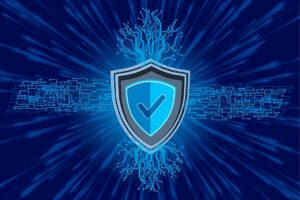Security Tips (cc2 CyberINseguro)
(Safety Tips for children and Teenagers)
Hi guys and girls!! Welcome to CiberINseguro Kids & Teens (Click here to go to the Spanish Original Post).
Throughout this article from the Kids & Teens community, we are going to see a series of safety tips for children and teenagers .
Because without a doubt we have had to live in a time in which we are hyper-connected and we must be prepared.
But what does that mean?
Well, basically, that we are connected to the internet in almost everything we do throughout the day, through the mobile, the computer, the Tablet, to use the social networks, to search for information and to do some homework or work for the school and of course to play online with our friends.
The Internet is a wonderful tool, but there are also many risks that we must be aware of in order not to have problems.
We must take care of ourselves as much as possible, and with the safety advice for children and adolescents that I am going to give you below, we will be able to enjoy the internet with much less risk and problems associated with the bad decisions that we can make at any given time.
It is very important that we know about these dangers so that no one can deceive us or take advantage of us. We are the Kids & Teens community of CiberINseguro .
We are going to see a series of safety tips for children and adolescents that will help us to make everything go well while we use the internet.
The first thing we should know is that always, I always repeat, there is someone on the other side listening, spying, watching, posing as another person trying to deceive us, trying to rob us, etc.
Don’t worry, we’ll see how we can avoid them. But avoid whom? to hackers? Noooo.
A HACKER IS NOT A CYBER CRIMINAL , hackers are the good guys, cyber criminals are the bad guys.
A hacker is a cybersecurity expert who helps people so that nothing bad happens to them on their computers, mobile phones, tablets, etc.
Hackers protect us without us even knowing it. When one of these hackers does something bad, he stops being a hacker and they become a cybercriminal, so the police chase them and put them in jail.
Security Tip No. 1
Never say who you are and where you live, your phone number, the name of the school or institute you go to, etc.
This information can be used by cybercriminals to find you, investigate you, learn about you, and then try to trick you or do worse.
Security Tip nº2
Beware of cyberbullying or cyberbullying.
If you suffer from it or think you may be suffering from it, tell an adult immediately.
Do you not know or are not clear about what cyberbullying is?
Don’t worry, we help you recognize it. You can consult this article on Cyberbullying , where we tell you clearly.
And if you still have questions, ask us what you need through CyberINseguro contact form .

Security Tip No. 3
Respect others on social media.
Never do anything or say anything you wouldn’t do in front of your parents.
If you don’t respect others, others may not respect you.
And you surely wouldn’t want that to happen, right?
Don’t do anything to anyone you wouldn’t want them to do to you.
Security Tip No. 4
Use strong and complex passwords for all your applications, accounts in social networks, online games, etc.
Guessing our passwords is very, very easy for a cybercriminal. It would only take a few seconds to figure out your password, in most cases.
If possible, apply a two-factor authentication.
This will help protect your accounts.
If you don’t know what it is, or don’t know how to apply it, ask an adult for help.
You can also take a look at our video where we talk about multi-factor authentication .
Do not share passwords with anyone, only your parents or guardians. This is very common and can become a security problem for you. Please don’t be XXXXX.
Security Tip nº5
Never send anything, neither messages, nor photos, nor your location… nothing, to people you don’t know.
And if you can, don’t even do it, even if you think that the other person on the other side is your best friend, since it is very, very easy to impersonate another person in social networks or online games.
Cybercriminals are all the time posing as people they are not, so it is very easy for them to deceive us.
Security Tip No. 6
Ask your parents for help to set up the apps you need and to set up the devices you use to connect to the internet or play games online.
There are many applications that are free, but in reality they are free because they show ads, promotions or links to paid sites where there is most likely content that is not appropriate for us.
In addition to the fact that a charge may come for things that you do not even know you have installed on your mobile, tablet or computer.
If you start downloading applications without control, you can get more than one scare.
And it is possible that on top of that, you can download some type of virus or malware.
Asking your parents for help is not bad. Surely doing so you feel more secure and they will trust you more.
Security Tip nº7
If possible, avoid using public chats in games as many players impersonate children to gain our trust.
In this way, they can try to trick you.
If you use this type of chats, use private chats, and only with known people and with parental supervision.
It’s not that your parents want to spy on you, it’s that if you have a problem, they’ll detect it sooner and can help you solve it as soon as possible.
If you need your parents not to be in front or not to supervise your activity, it is possible that you are doing things that you should not, right?
But if you have a problem, when you go to your parents, it will be even worse.
Security Tip nº8
Always use an antivirus so that it can protect you against possible infection attempts. None guarantees our security 100%, but it is certainly a great help.
Many applications that we download can contain viruses and infect our computer, mobile or tablet.
Once infected, cybercriminals can see everything we do, they can steal our information, such as photos, videos, our social network accounts or online games, they can blackmail us into doing everything they ask in exchange for leaving us alone or not tell our parents something serious and endless problems that can come without warning.

Security Tip nº9
Close all your accounts when you stop using them, such as your social media accounts or online games. That is, when you stop using them, close the session.
If we always leave them open, a cybercriminal who has infected our computer, for example, can steal our passwords and impersonate us.
Of course, also turn off your computer if you are no longer using it. If you leave it on with your accounts open, you’ll be making it easy for cybercriminals.
Security Tip nº10
Don’t make video calls with anyone you don’t know.
If you do not know the person with whom you are going to connect, it is very dangerous to make a video or audio call.
Cybercriminals pretend to be children or adolescents with the same tastes as us to deceive us.
If we connect to these calls, they can blackmail us and force us to do things we don’t want to do.
If this is happening to you, tell an adult immediately.
Security Tip nº11
Not everything that is published on the internet and on social networks is true. In fact, much of what is published is false or manipulated to appear to be true.
Social networks and the Internet in general allow you to publish practically whatever you want, but this does not guarantee that it is true.
Don’t believe everything you read or see on the internet. There are many lies and some of them can be dangerous for us.
Security Tip nº12
For no reason stay or see yourself in real life, with a person you just met through social networks, online games and the internet.
In general, everyone through social networks and online games is very nice, friendly, they share our tastes, etc.
The problem is that this usually ends badly since the person on the other side may not be who they say they are, so we can have very serious problems if we see ourselves with that person, since all they are trying to do is make us do things that in we don’t really want to do
Security Tip No. 13
Do not share information about yourself, your family or friends on social networks and the internet.
In general, this information can be used for bad things.
Imagine, are you going to talk to a stranger on the street and tell him your name, show them your photos or share your tastes? If you don’t do it, why do you do it on the internet, in social networks and online games?
Security Tip No. 14
Be careful where you go on the internet.
Just because you are browsing, you may be accessing content that is not appropriate for your age. This can have serious consequences for you, your behavior, your way of being, your fears and even for the safety of your family and friends.
If you have doubts if you are doing it right, ask your parents. They will be happy to help you and trust you more. They will think you are responsible.
Security Tip No. 15
If you want to browse safely, enjoy your social networks safely or just worry about having a good time while playing your online games, don’t miss our following videos and articles in this community, CiberINSeguro Kids & Teens .
And of course, I hope that these safety tips for children and adolescents will be of great help to you.
Do not forget that if you have questions you can contact us, also if you want to provide your own safety advice for children and adolescents, you can do so through CyberINseguro contact form and through the comments.
Together we will make this community your community, CiberINseguro Kids & Teens .
This text is the translation of the original by CyberINseguro.- You can read the original post at…
(Click here to go to the Spanish Original Post).
CPI ZARAGOZA SUR.- INICIO